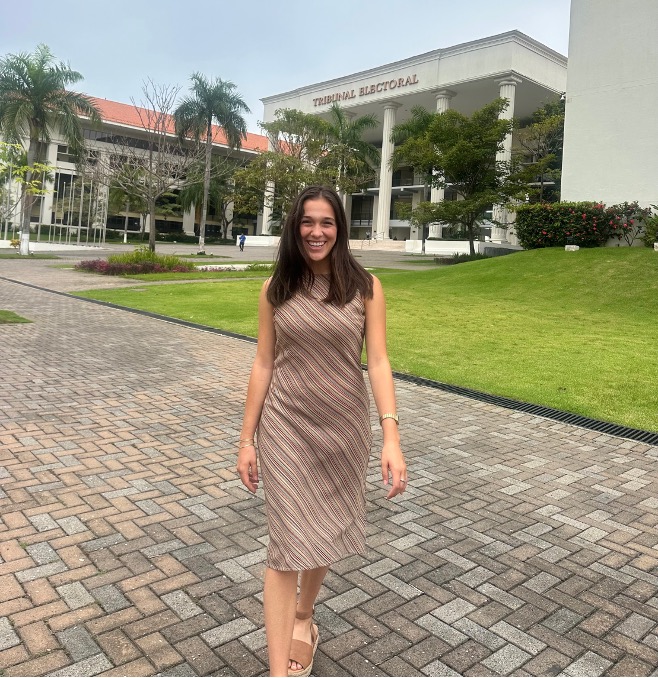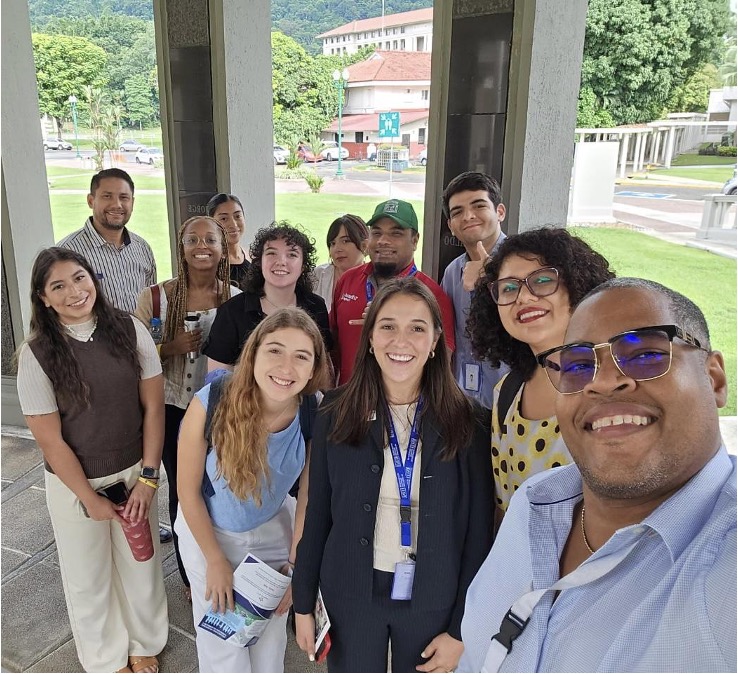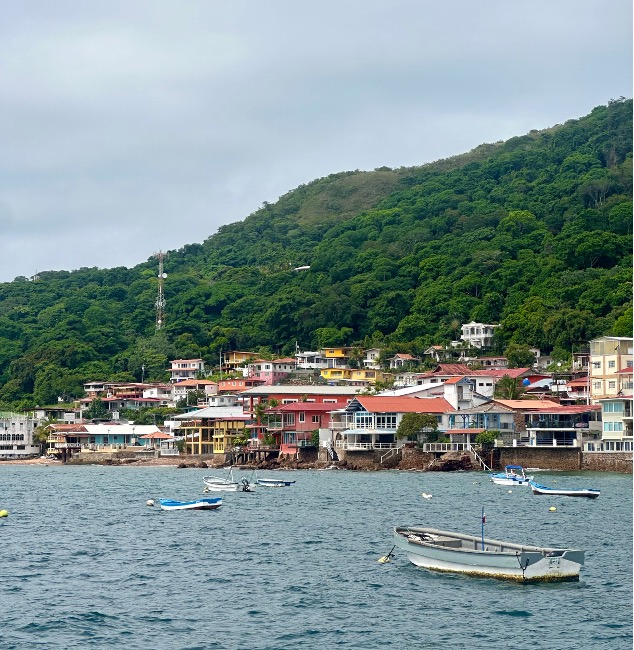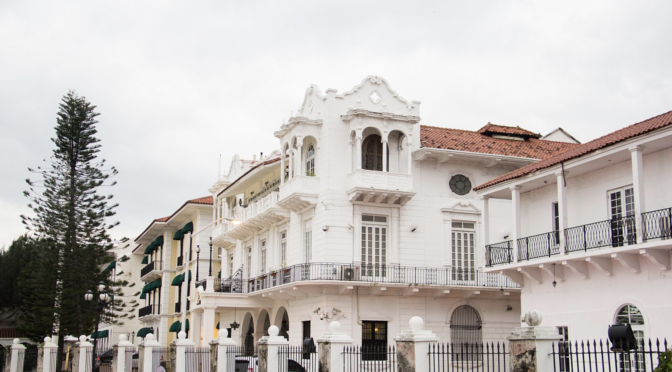By Andrea Meador-Safont, Undergraduate student in the UT Government Department and Plan II Honors Program
Just weeks after Panama elected a new president and National Assembly, I landed at the front steps of a grandiose government building, tasked with helping seasoned researchers analyze the new government citizens chose to represent them. Following one of the most important elections since Panama’s transition to democracy, incoming President José Raúl Mulino has the Herculean task of leading a country away from polarization, political tension, and social divisions while tackling issues of corruption, migration, and the environment. Many Panamanians have expressed disillusionment with their government, citing political corruption as a significant concern. However, amid voter apathy and citizen disaffection, there is a glimmer of hope that the incoming administration may bring about much-needed change.

International IDEA’s country office in Panama is housed inside the office of INED, el Instituto de Estudios Democráticos or the Institute of Democratic Studies. INED is the part of the Electoral Tribunal of Panama dedicated to democracy research, focusing specifically on electoral processes and political participation. During my time working with these offices, I undertook various projects adjacent to my primary research interest of democratic backsliding.
First, I worked on a project tracking every presidential veto in modern history in Panama to analyze the rising power of the executive through this right. Using databases of the Asamblea Nacional de Panama (National Assembly of Panama), I became familiar with the different types of presidential vetoes—conditional, meaning the president sends the bill back to the National Assembly with proposed amendments or conditions, and absolute, meaning the president rejects the bill completely, which can only be overridden if the National Assembly overrules the veto with a two-thirds majority vote. Additionally, presidents must provide a reason for their veto, citing it as either inconvenient or inexecutable.
Next, I prepared a bibliography for research on the rise of candidates running as independents. The motivation for this research is both procedural—to document all of the ways a candidate can run for office outside of the traditional party system in Panama—and conceptual—to explore broader questions about the impact on democratic institutions when individuals can run for office through so many different avenues. I also updated the institution’s ongoing bibliography on every major new publication regarding Panamanian democracy, political parties, and elections. Finally, a fellow and I assisted the director of INED, Salvador Sánchez, with translating a paper he plans to publish in English on the history of the Panamanian Constitution.
I also continued my research on democratic backsliding and citizen disaffection. As part of this, I collaborated with a podcast analyzing the history of elections in Panama and utilizing AI technology to help write transcripts for their recorded episodes. Additionally, I helped transcribe constitutional reforms from 1982-1983 for a project documenting the reform process at that time.

Inside and outside of the workplace, we explored Panama City’s government buildings, libraries, museums, research institutions, UNESCO World Heritage sites, and universities. A few of my favorite visits through work were to the old home-turned-museum of Ricardo J. Alfáro—a former president of Panama and chairman of the United Nations legal committee that drafted the Convention on Genocide, the Biblioteca Nacional (National Library), the Centro de Investigaciones Históricas Antropológicas y Culturales (CIHAC AIP), and the Museo de la Cultura Democrática—the Electoral Tribunal’s Museum of Democratic Culture. Through these visits organized by IDEA, our cohort of fellows gained knowledge on a myriad of topics, adding context to the history of Panama that we had learned before our arrival, understanding the necessity of document preservation, learning about the work of a new research institution on culture and anthropology, and always connecting lessons learned back to our work.
Apart from our internship, the other fellows and I had the privilege to explore all that Panama has to offer. From watching a musical at the historic Teatro Nacional to walking to the top of the Catedral Basílica Metropolitana Santa María La Antigua to indulging in delicious Panamanian cuisine, we sought to explore all aspects of Panama. I most enjoyed visiting Casco Viejo, a historic neighborhood and UNESCO World Heritage site known for its well-preserved colonial architecture with a blend of Spanish, French, and American influences from different periods of Panama’s history. I also loved walking around the historical area of Panama Viejo and visiting Parque Omar.
We also took a few trips to explore outside the city, including a trip to Taboga Island just off the coast of Panama City, boasting beautiful beaches and one of the oldest churches in the Americas, dating back to the early 16th Century. We also got to visit Colón, the Caribbean port of the Panama Canal andhome of Castillo de San Lorenzo. Finally, our group visited Monkey Island in the Panama Canal and got to experience the natural beauty surrounding the city. Each of these experiences highlighted Panama’s cultural and historical richness and deepened our connection to its storied past and vibrant present.

I adored living in and learning from Panama City, as well as working with the researchers I had the privilege to call colleagues. The conversations I had with local Panamanians, from my host family to shop owners, allowed me to glean insights about what civic engagement means to them and their hopes or disappointments regarding the incoming administration.
There is change happening all over the world in terms of the global rise of democratic backsliding, and now is the time to engage deeply with the issues surrounding democratic disaffection, understand their underlying causes, and explore effective strategies to counteract authoritarianism on a global scale. On a brighter note, Panama is full of beautiful culture, which I learned about every day during my stay.
